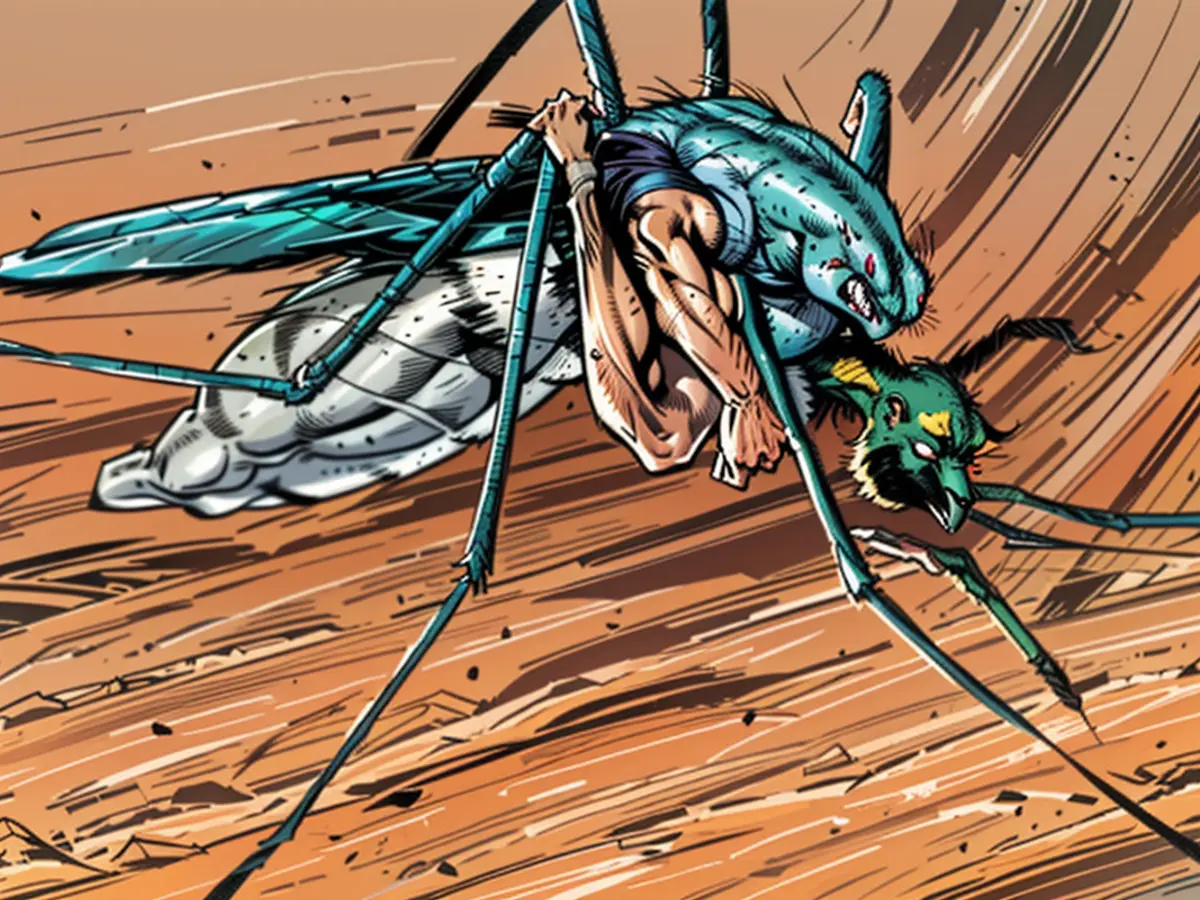Infections diseases - West Nile infection identified in a kestrel in Berlin
At a Hawk in Berlin, an Tuesday a infection with the West Nile Virus was detected. In this mosquito season, it is the second known outbreak in Germany and the first in Berlin, according to the Berlin Senate Department for Consumer Protection. The animal body was examined in the Landeslabor Berlin-Brandenburg. The Friedrich-Loeffler-Institute (FLI) confirmed the finding. The first reported case this year in Germany, according to an FLI spokesperson, was a raptor found in Brandenburg in January.
The West Nile Virus originated in Africa and is transmitted by mosquitoes. The virus was first detected in Germany in 2018 and has since led to infections in birds, horses, and humans every year. According to the Senate Department, there have been annual outbreaks in birds in Berlin since 2018. "It is assumed that the virus is endemic in Berlin as a whole."
Cases mainly in Eastern Germany
According to FLI data, there were at least 18 confirmed West Nile Virus infections in horses and 24 in wild and zoo animals (as of 27.11.2023). The majority of the infections were detected in Berlin, Brandenburg, Saxony-Anhalt, Saxony, and some in Thuringia.
Mosquitoes and birds can spread the Virus, not humans and other mammals. They are called dead-end hosts. West Nile Fever is one of the few diseases transmitted by mosquitoes in Europe. According to the Robert Koch Institute (RKI), most infections are asymptomatic, approximately 20% of the infected develop a feverish, influenza-like illness lasting a few days, and about one in every hundred becomes an encephalitis or meningitis. There is no vaccine for humans, but there is one for horses.
- The detection of the West Nile Virus infection in a hawk in Berlin has raised concerns in the scientific community, particularly at the Friedrich-Loeffler-Institute in Germany.
- The Brandenburg region, like Berlin, has also experienced West Nil Virus infections, as evidenced by the first reported case found in a raptor there in January.
- There is currently no specific treatment or vaccine for the West Nile Virus infection disease in humans, but Germany has implemented preventive measures such as monitoring mosquito populations and advising people to protect themselves against mosquito bites.
- Despite the recent increase in reported West Nile Virus infections in animals in Germany, with the highest level being detected in Berlin, Brandenburg, Saxony-Anhalt, Saxony, and Thuringia, the risk of human infection remains relatively low.
- The Friedrich-Loeffler-Institute and other scientific institutions in Germany continue to conduct research on the West Nil Virus, focusing on understanding its transmission cycles, developing potential vaccines, and improving vector control strategies.








